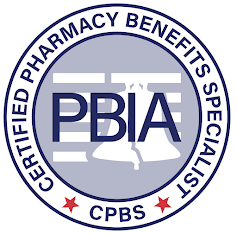ERISA’s Cure for the $1.5 Trillion Health Benefits Market and other notes from around the interweb:
- Hiding in Plain Sight: ERISA’s Cure for the $1.5 Trillion Health Benefits Market. Fiduciaries are expected to consult outside experts to inform their decisions where the circumstances warrant but may not blindly rely on expert advice. As the Court of Appeals for the Third Circuit has explained, “While we would encourage fiduciaries to retain the services of consultants when they need outside assistance to make prudent investments and do not expect fiduciaries to duplicate their advisers’ investigative efforts, we believe that ERISA’s duty to investigate requires fiduciaries to review the data a consultant gathers, to assess its significance and to supplement it where necessary.”
- Best Pharmacy Benefit Consultants for Cost-Effective Drug Plans. In the complex world of healthcare and pharmaceuticals, managing costs while ensuring the best possible care can be a daunting challenge for businesses of all sizes. Pharmacy Benefit Consultants (PBCs) play a crucial role in navigating this landscape, offering expertise that can lead to significant savings and more effective drug plan management. This article delves into the importance of PBCs, what to look for when selecting a consultant, and how they can transform the cost-effectiveness of drug plans.
- 5 ways to improve your PBM procurement process in 2024. Many self-funded plan sponsors struggle to manage the cost of pharmacy benefits and rely on non-transparent contract guarantees to hold PBMs accountable. Meanwhile, drug spending continues to compound at an astonishing rate in defiance of the savings promised during the procurement process. As a former pharmacy program director for a plan covering more than 16,000 lives, I can tell you that it is possible to stop the “games” PBMs play, control costs, and ensure that all contractual guarantees are met, especially in scenarios where a PBM won’t guarantee an all-in per member per month (PMPM) cost for the year. Understanding the problem is a part of the solution, but making meaningful changes to the way plan sponsors and brokers evaluate PBMs is where the real opportunity lies.
- 3 thing to know about specialty pharmacy in 2024. Specialty drugs may be covered by a medical benefit (what patient-members likely think of as “their insurance”) or pharmacy benefits. There’s often a gray area for where specialty falls, but it can relate to whether the drug is being administered in a clinical setting, like a doctor’s office, outpatient clinic, or infusion center. Reimbursement for these drugs can also vary between average wholesale price (AWP) for pharmacy reimbursement and average sales price (ASP) for the medical benefit. It’s complex to compare, and both ASP and AWP are used in the health care industry, but they’re different. ASP is a government-regulated tool that uses manufacturer sales information including discounts, such as rebates. AWP is the average price that wholesalers sell drugs to pharmacies, prescribers, and others. A government report found the median percentage difference between ASP and AWP to be 49%.
